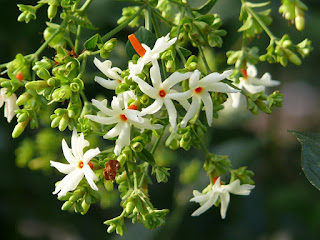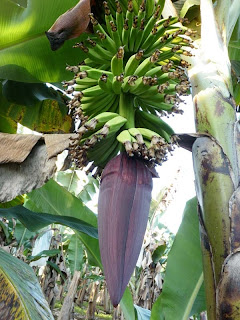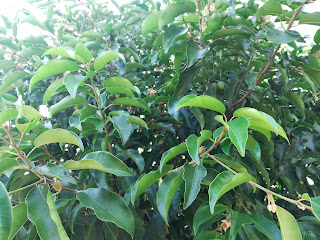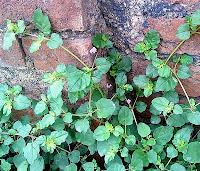NATURAL AND HERBAL REMEDY FOR NIPAH VIRUS INFECTION
Nipha virus is a highly contagious and deadly virus mainly spread through fruit bats and pigs. When a person is infected with Nipha virus, the symptoms will start to appear within 3 to 14 days.
Symptoms
Pavalamalli or parijatha is an ornamental plant having lots of medicinal properties. Nyctanthes arbor-tristis is its botanical name and belongs to family Oleacea. It is having anti microbial,anti inflammatory properties. In Ayurveda, these leaves are used to cure all types of acute and chronic fevers. This is a good herb to treat Nipha virus infection.
Nilavembu is a medicinal herb having lots of medicinal properties. Its botanical name is Andrographis paniculata and it belongs to the family Acanthacaea. It is anti-inflammatory, anti-microbial and blood detoxifier. It helps to cure intermittent and chronic fever.
Tulsi or holy basil leaves are excellent remedy for fevers, asthma, respiratory diseases and heart diseases. Ocimum tenuiflorum is its botanical name and belongs to family Lamiaecea. It has anti-bacterial, anti-viral and amazing healing properties. It has vitamin C, antioxidants and eugenol which will protect our heart from other infections.
Vallarai or brahmi leaves have ability to cure fever, improve memory and protect brain, this is used in ayurveda to cure all types of fevers and improving memory. Centella asiatica is its botanical name and belongs to family Apiaceae. Vellarin is a plant chemical found in this plant which is very useful for memory.
Long pepper or Thippili helps to reduce fevers as it has antiseptic property. Its botanical name is Piper longum and it belongs to the family Piperaceae.
Black pepper or Milagu will fight against infection and protects heart. Its botanical name is Piper nigrum and it belongs to the family Piperaceae.
Symptoms
- Initially presentation of this disease is non-specific with sudden onset of symptoms like fever, headache, muscle pain,nausea and vomiting which is followed by drowsiness and confusion.
- Showing some neurological signs like neck rigidity, photophobia, drowsiness, disorientation and mental confusion because of encephalitis (inflammation of the brain).
- Its symptoms goes analogous with that of influenza (common flu or animal flu).
- In serious cases, it might lead to myocarditis (inflammation of heart wall) and even coma in some cases.
- People who are exposed to bats and pigs
- Consuming pork (pig meat) and fruits bitten by bats
- Contact with people who already have Nipha virus infection.
- It spreads through cough and sneeze of the infected person.
Natural and herbal remedy for curing Nipha virus infection
There are miraculous herbs that can cure and prevent Nipha virus infection. The herbal remedy mentioned below is very effective to cure Nipha virus infection, within a week without side effects. You can prepare this kashayam or decoction at your home.
All the undermentioned medicinal herbs will be available in herbal stores in a powdered form. Some herbs might be available freshly in your living area.
Ingredients
There are miraculous herbs that can cure and prevent Nipha virus infection. The herbal remedy mentioned below is very effective to cure Nipha virus infection, within a week without side effects. You can prepare this kashayam or decoction at your home.
All the undermentioned medicinal herbs will be available in herbal stores in a powdered form. Some herbs might be available freshly in your living area.
Ingredients
- Vishnukiranthai powder - 1 teaspoon or fresh whole plant - 2
- Gudichi or seenthilkodi powder - 1 tsp
- Pavalamalli or Parijatha fresh leaves - 20
- Nilavembu fresh leaves - 20 or powder - 1 tsp
- Tulsi leaves - A hand full of fresh leaves or powder 1 tsp
- Vallarai or brahmi leaves - 20 fresh leaves or powder 1 tsp
- Long pepper powder - 1/2 tsp
- Black pepper powder - 1/2 tsp
- Water - 4 liters
- Honey - 1 tsp
- Take all above mentioned ingredients in a vessel.
- Add 4 liters of drinking water to it.
- Boil it and still reduce it to half.
- Strain this mixture and store it in a proper container.
- Take 100 ml of this decoction or kashayam in a glass.
- Add one tsp full of honey
- Mix it well
- Have this kashayam before food, 3 to 4 times a day, for 5 to 7 days.
 |
| Vishnukranthai or Morning Glory |
Gudichi or Seenthil kodi is a herbaceous vine. Tinospora cordifolia is the botanical name of this medicinal plant belongs to the family of Menispermaceae. Gudichi in sankrit means 'one which protects the body'. Usually it is used in Siddha and Ayurveda for treating all types of fevers and reducing inflammation. It has anti-viral,immuno-modulatory, anti-inflammatory and rejuvenative properties. It is an excellent herb to treat Nipha virus infection.
 |
| Seenthil Kodi or Gudichi |
Pavalamalli or parijatha is an ornamental plant having lots of medicinal properties. Nyctanthes arbor-tristis is its botanical name and belongs to family Oleacea. It is having anti microbial,anti inflammatory properties. In Ayurveda, these leaves are used to cure all types of acute and chronic fevers. This is a good herb to treat Nipha virus infection.
 |
| Pavalamalli or Parijatham |
Nilavembu is a medicinal herb having lots of medicinal properties. Its botanical name is Andrographis paniculata and it belongs to the family Acanthacaea. It is anti-inflammatory, anti-microbial and blood detoxifier. It helps to cure intermittent and chronic fever.
 |
| Nilavembu |
Tulsi or holy basil leaves are excellent remedy for fevers, asthma, respiratory diseases and heart diseases. Ocimum tenuiflorum is its botanical name and belongs to family Lamiaecea. It has anti-bacterial, anti-viral and amazing healing properties. It has vitamin C, antioxidants and eugenol which will protect our heart from other infections.
 |
| Tulsi or Holy Basil |
Vallarai or brahmi leaves have ability to cure fever, improve memory and protect brain, this is used in ayurveda to cure all types of fevers and improving memory. Centella asiatica is its botanical name and belongs to family Apiaceae. Vellarin is a plant chemical found in this plant which is very useful for memory.
 |
| Vallarai or Brahmi leaves |
Long pepper or Thippili helps to reduce fevers as it has antiseptic property. Its botanical name is Piper longum and it belongs to the family Piperaceae.
 |
| Long Pepper or Thippili |
Black pepper or Milagu will fight against infection and protects heart. Its botanical name is Piper nigrum and it belongs to the family Piperaceae.
 |
| Black pepper or Milagu |





Comments
Post a Comment